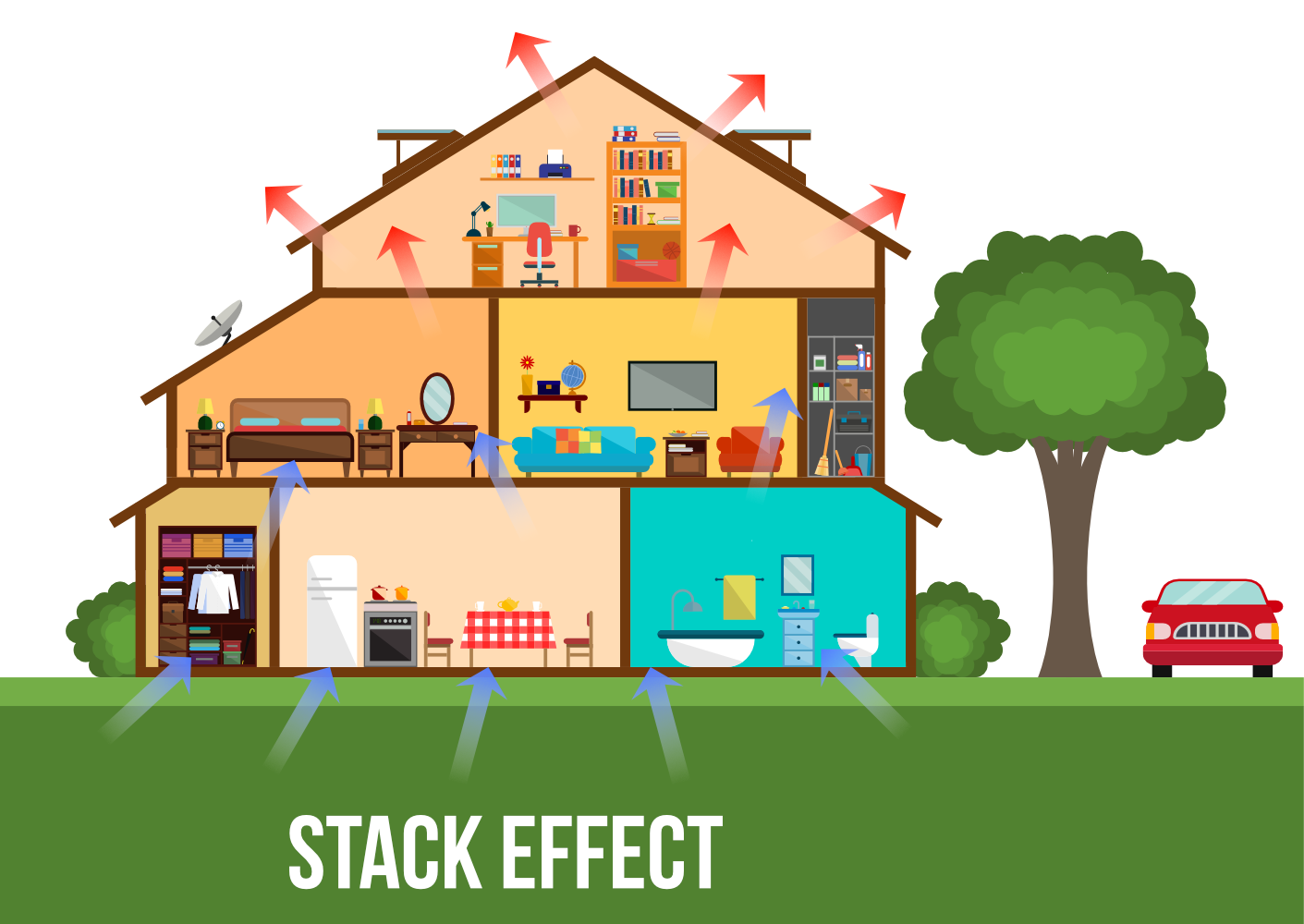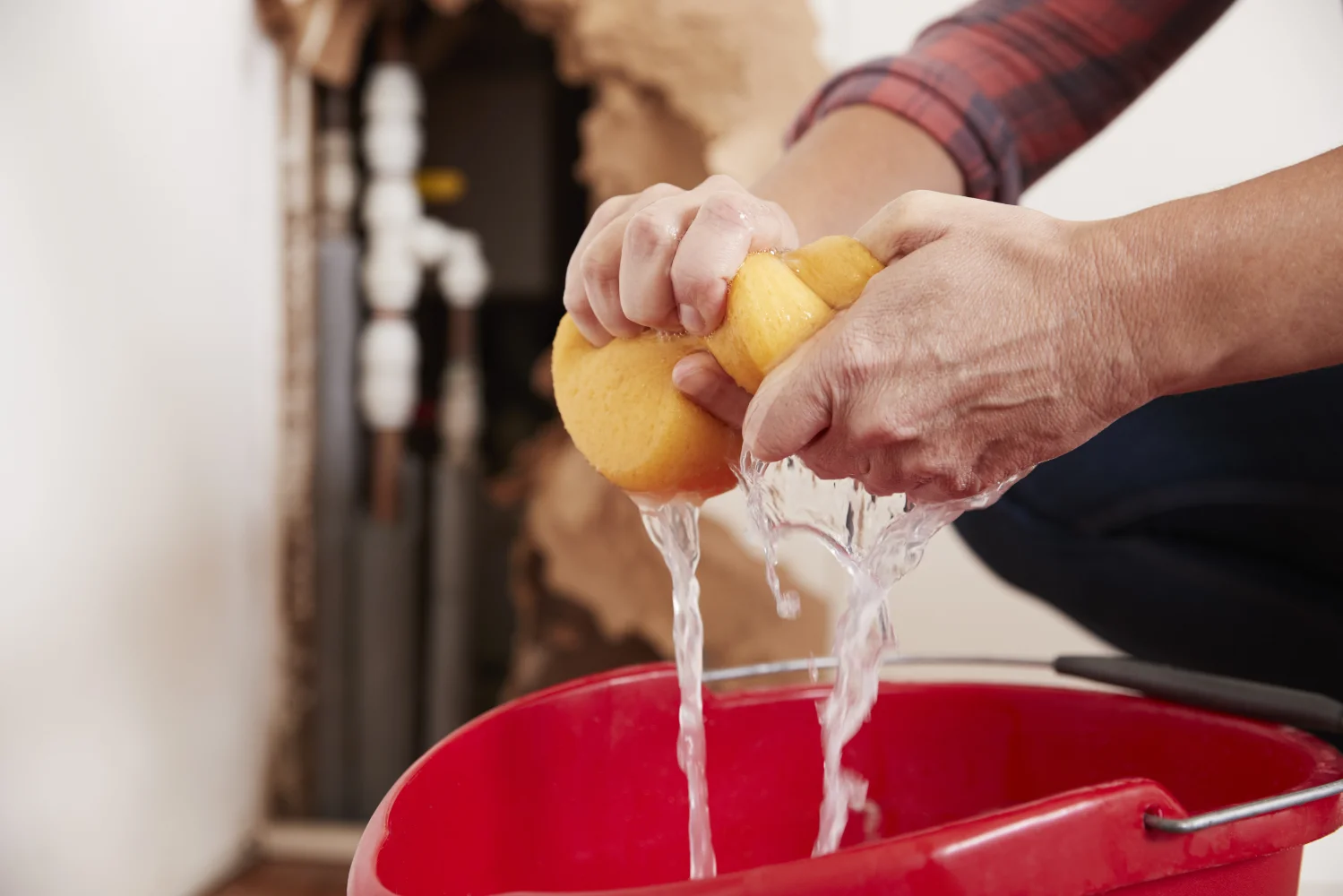Why Rainfall Elevates Radon Levels in Your Home
Yes, it is true that radon levels in a home do elevate when it rains. In this article, we are going to go over the reasons why this happens. First, here’s a little about Radon and why this information is important to the Indoor Air Quality of your home. Radon is a naturally occurring radioactive gas produced by the decay of uranium in all of Earth’s soil. Since radon comes out of the ground, how is rainfall from the sky attributed to elevated levels of Radon in the home?
Why Radon is So Dangerous
Being that this gas is odorless, colorless, and tasteless, radon is undetectable without the use of specialized equipment. It is also a Class A carcinogen, which means long-term exposure to high levels of radon can increase the risk of lung cancer.
How Rainfall Contributes to Elevated Levels of Radon
The Capping Effect
When rain falls, water hits the soil around the home causing the soil to become saturated. The water displaces the air in the soil, creating more space for the radon to move around and escape into the air. The Radon will naturally move to the path of least resistance. When rainfall hits the soil, it also creates a capping effect on the soil. This capping effect causes more radon to be displaced from the soil pores underneath the home and into the house as this will be the current path of least resistance. Ultimately, this contributes to increasing radon concentrations in the home during rainfall. A similar capping effect can be caused by front or asphalt aprons around buildings.
Drop in Barometric Pressure
In addition to the increased release of radon from the soil, rain can also cause changes in air pressure that can draw more radon gas into the home. Rainfalls are also accompanied by a drop in barometric pressure. When the air pressure inside the home is lower than the air pressure outside, the home acts like a vacuum, drawing in air and any radon gas that may be present in the surrounding soil. This is known as the stack effect, and it can be especially pronounced during times of high humidity, such as after a rainfall.

Keep in Mind
This phenomenon is not universal which means that not all homes will experience elevated radon levels the same during or after rainfall. The amount of radon gas released from the soil is dependent on a variety of factors, including the type of soil, the amount of decaying uranium present in the soil, and other weather conditions. Some homes may be more susceptible to elevated radon levels during periods of heavy rain or high humidity, while others may experience very little to no change at all. Factors like the building envelope of the home, HVAC system efficiency, and other aspects can have an impact here as well.
Testing Radon Levels
To reduce the risk of elevated radon levels in your home, we recommend having your home tested biannually by a qualified radon testing professional. A Certified Radon Inspector can use specialized equipment to measure the levels of radon in your home and recommend any necessary steps to reduce your exposure. These steps may include sealing any cracks or gaps in your home's foundation, improving ventilation, or installing a radon mitigation system. In addition, a qualified Radon professional should also be able to take into account the effects of rainfall on your radon testing, specifically in the case of performing long-term testing (minimum of 90 days).
In conclusion, rainfall can contribute to elevated radon levels in a home by increasing the release of radon gas from the surrounding soil and changing air pressure inside the home. While not all homes will experience changes in radon levels the same, it's important to be aware of the potential risks and take steps to protect your health and the health of your family. Regular radon testing and mitigation can help ensure that your home is a safe and healthy place to live.











